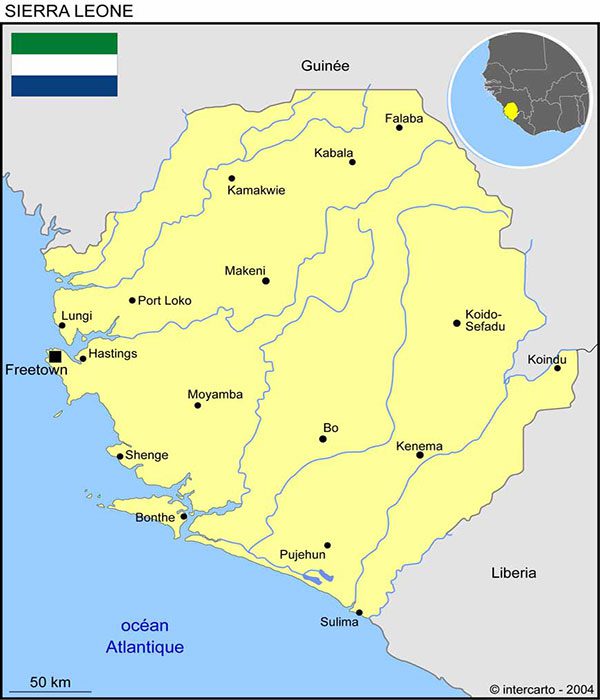The scene at Doff Cut, a popular market in Central Freetown, is very unusual on Saturday, the eve of the festivities of Eidul Adha.
This is the one place you can get anything you desire to make any kind of meal.
Therefore, on a day like this, this street is usually jam-packed with people but in the hours ahead of the Eid prayers, it’s virtually empty.
The rains are no doubt a major contributing factor.
But, according to Mariatu Kargbo, who trades in cooking ingredients, it has more to do with the economy than the rains.
“’Dunkay Sali’ (as the Eid celebrations are referred to in the local parlance) always fall within the rainy season. And I have not seen this kind of situation for a long time,” she said, lamenting what she said is a huge drop in sale.
Sierra Leone is going through a tough economic challenge, with the Leone experiencing a free fall against major foreign currecies, particularly the US dollar.
Latest figures from the Bank of Sierra Leone indicate that the Leone goes for Le9, 117.63 a dollar as of August 9.
This contrasts sharply with the black market, where it’s almost Le 10, 000 to the dollar.
The effect of this is felt across the board, from the office worker to the ordinary man in the streets.
Sentiments on the streets precisely depict this.
At a suburb in Fourah Bay, a predominantly Mulsim community in the east end of Freetown, three men negotiate for a ram.
Slaughtering of the ram is a major part of the Eid celebration.
But one of the men, Abdurahman Kamara, is less optimistic that he will be able to meet this crucial aspect of the religious rites this year.
He does not reach an agreement with the seller of the animal who he says is asking for a fortune.
“Last year, I bought a ship about this size for Le900, 000 (under US$100). This time round I am unable to get it for Le1.2million (a little above US$100),” he laments.
Sierra Leoneans rely on cross-border traders for the animals which are imported from neighboring countries, through Guinea.
The livestock dealers say the cost of transporting the livestock and the taxes involved meant prices have to go up.
In the last two weeks, a large section of the local print media has been inundated with calls for the removal of the Minister of Finance, Jacob Jusu Safa for his alleged inability to fix the economic challenges facing the country.
One of the most popular headlines goes: “$100 =Le980, 000… JJ Saffa, Sahr Jus, Banka Governr take Salone t Mgabe’s Zmbabwe.”
It was carried by the Salne Times which is also calling for the removal of the Governor of the Central Bank and the Financial Secretary.
Every aspect of life has been affected by this hash economic reality.
It’s tradition for Sierra Leoneans to travel to their homes in the provinces to observe the Eid with extended family.
But this year this is not going to be so for Dauda Barrie, a technician by profession.
He abandoned the idea at the last minute after realizing that he will have to spend half of his pocket money on transport fares to and from the southern Bo district.
The drivers, he says have driven up fares.
For a small but substantial segment of the population, the concern is less about what to eat than where to spend the feast.
In the last three weeks Sierra Leone has witnessed devastating flooding which have left over 5, 000 people homeless in various communities across the country.
Many of these people are either housed in temporary shelters or are squatting with relatives in nearby communities.
Kumba Mansaray and her three daughters are staying at her own sister’s in the Shell Area in the east end of Freetown.
Kumba’s husband, Abubakar, is staying in the other end of the city at Lumley.
The family lost all their belongings in the flooding that occurred across the city on August 2.
“It’s sad that this coincided with the Eid” says Kumba, 34, in a sombre mood.
“As you can see now, what we eat or what we hear is the least of our concerns at the moment,” she adds.
KC/as/APA


